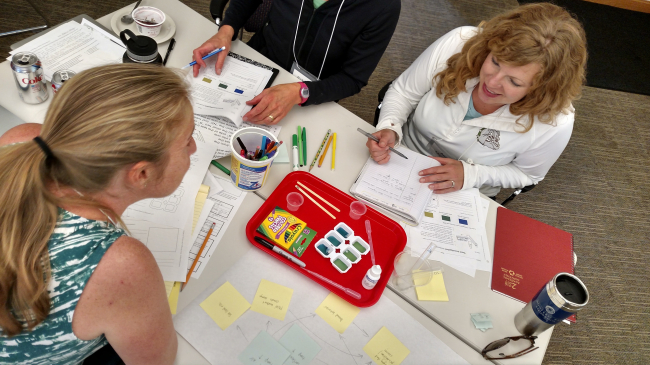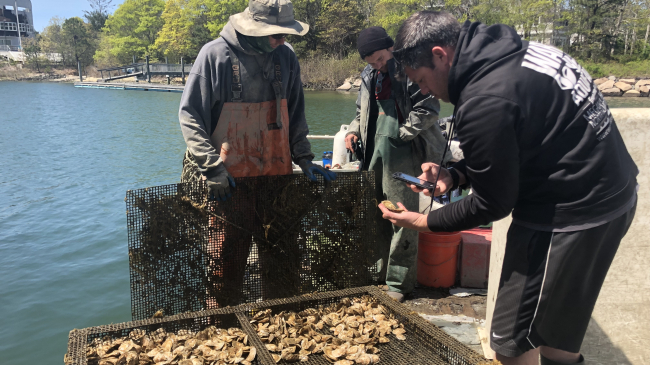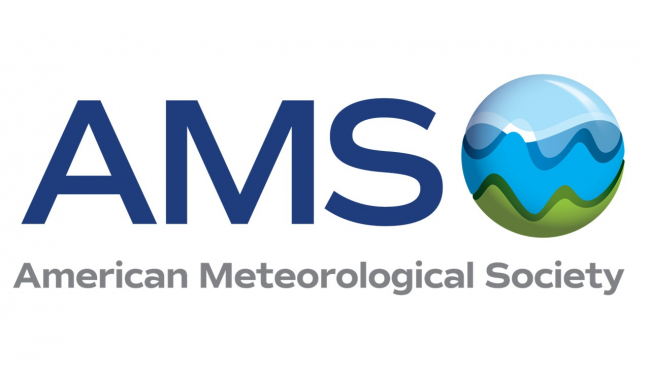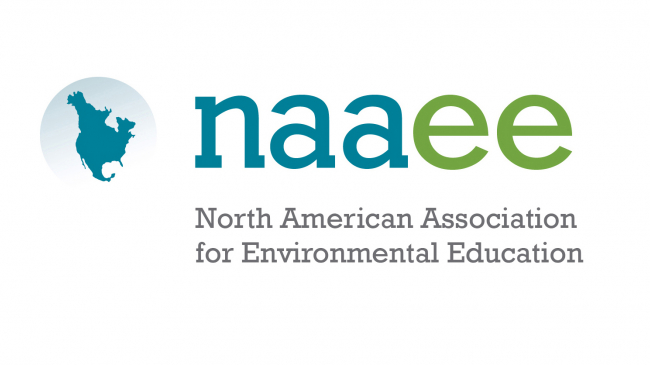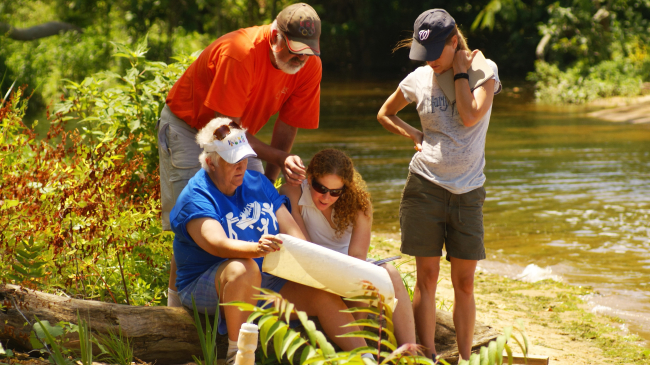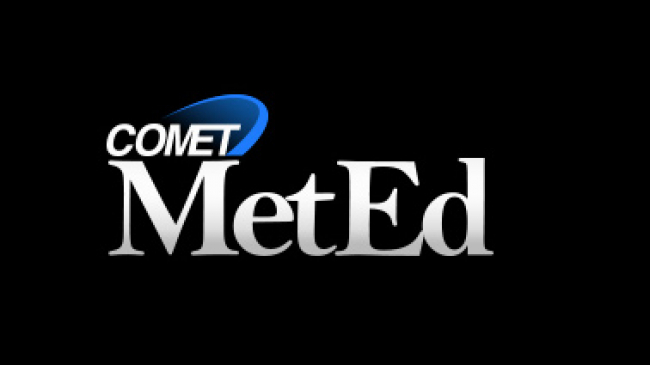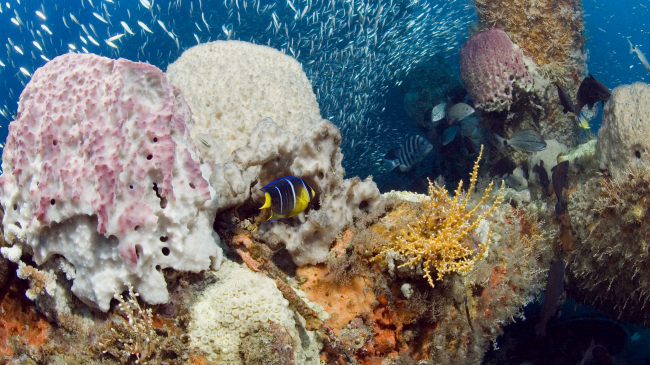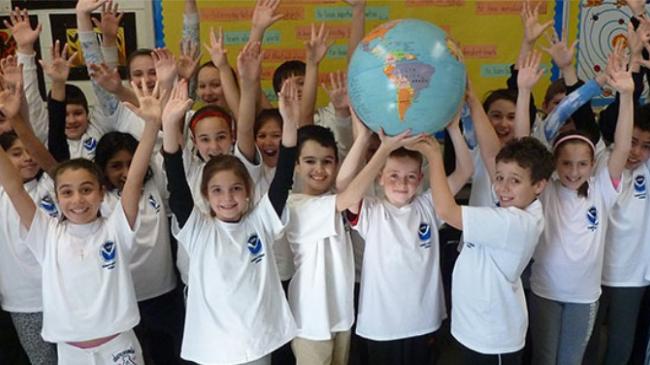Find information about educational opportunities that are available to educators through NOAA.
The ACLIPSE course engages grade 6–12 teachers and teacher candidates in climate science/change activities using authentic data. ACLIPSE uses climate science as the context for applying current research about teaching and learning aligned with the Framework for K–12 Science Education. Educators and their students also improve their skills for using and interpreting real- and near real-time data. ACLIPSE includes instructional materials developed with NOAA's financial and scientific support.
Teaching about climate and energy? Our NOAA partner, the award-winning Climate Literacy and Energy Awareness Network (CLEAN) collection contains over 800 educational resources that are free, peer-reviewed, NGSS aligned, easily searchable, and ready-to-use for teaching about climate and energy including activities, lab demonstrations, visualizations, and videos. CLEAN partners with climate scientists and educators to review educational resources and also provides pedagogical support for teaching climate and energy topics through background knowledge webpages, a professional development toolkit, webinars, and a professional learning community to help educators.
Take your teaching about climate and energy to the next level with the CLEAN Webinar Series! Register for upcoming webinars or watch recordings of past webinars.
The CELC Aquaculture Initiative is designed to connect NOAA resources and experts and aquarium educators so that they can better communicate aquaculture science and issues to the public. The webinar series is a quarterly event, where various aquaculture experts talk about a variety of issues, from how seafood helps with public health to the science of breeding corals or saving an endangered mollusc. Anyone is welcome to attend, but this program is especially for informal educators.
A 13-week distance-learning course on the atmospheric portion of the Earth system and its interaction with people using real-time data, text reading, activities, and online investigations. Course materials are included and 3 graduate credits are awarded upon completion of the course.
A 13-week distance-learning course on the fluid Earth system emphasizing the atmospheric, ocean, and hydrologic sciences using real-time data, text reading, activities, and online investigations. Course materials are included and 3 graduate credits are awarded upon completion of the course.
A 13-week distance-learning course that investigates the mass and energy flows associated with the global climate system and the related issues using real-time data, text reading, activities, and online investigations. Course materials are included and teachers receive 3 graduate credits upon completion of the course.
eePRO is an online platform for professional development run by the North American Association for Environmental Education (NAAEE). Join NOAA educators and thousands of other environmental educators who visit eePRO to post and explore resources, opportunities, events, and jobs.
The Meaningful Watershed Educational Experience (MWEE) is a learner-centered framework that focuses on investigations into local environmental issues and leads to informed action. The MWEE Practitioner Webinar Series is hosted by the Chesapeake Bay Program and the NOAA Chesapeake Bay Office to advance practice around delivering MWEEs.
MetEd is a free collection of hundreds of training modules intended for the geoscience community. The online modules cover a variety of topics and range from 30 minute lessons to entire university courses.
This webinar series provides formal and informal educators with educational and scientific expertise, resources and training to support ocean and climate literacy in the classroom.
Educators joining NOAA Planet Stewards receive sustained professional development through an active online learning community and regional events, and support in the development and implementation of hands-on projects that conserve, restore, and protect human communities and natural resources. Eligible participants may apply for mini-grants, travel stipends, and participate in contests.
NOAA Boulder scientists can talk to your group, wherever you are! Fill out the request form and the NOAA Boulder Outreach Team will contact you. Our scientists are working hard on their research, but they still love to talk to groups about what they are learning and working as a scientist. Virtual Talks will be about 30 minutes long, with another 10 minutes for Q&A.
NOAA Boulder will do their best to fulfill requests, but may not be able to fulfill all. They require at least four to six weeks advance notice for your best chance at a speaker.



